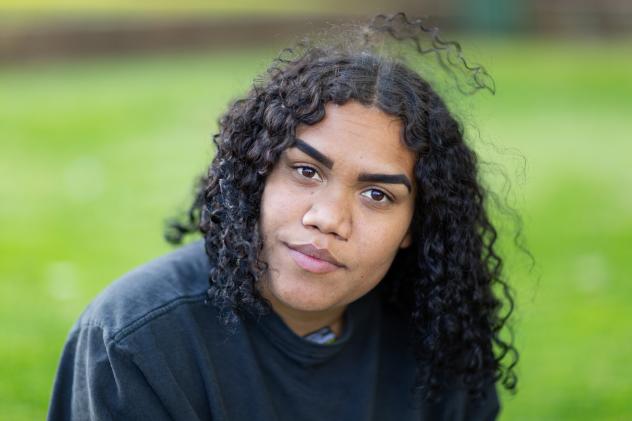Reporting mechanisms
If you witness or experience racism, you may want to report it. There are many places you can make a report. Depending on the nature of the incident, some may be more appropriate than others. Some forms of racism are unlawful, and if they occur in public spaces, they may be against the regulations of that particular place.
Police
If you think you or somebody else may be threatened or in danger, call the police on 000. You can also report behaviour that you think might be a criminal offense after an incident by phoning the police on 131 444.
Australian Human Rights Commission
Federal anti-discrimination law says that people can make complaints to the Australian Human Rights Commission about unlawful race discrimination. There is no cost in making a complaint.
The Commission is an independent agency and its role is to get both sides of the story and where appropriate, help those involved to resolve the complaint. The Commission is not a court and does not have the power to decide if what you are complaining about is unlawful discrimination. However, in some cases, for example, where your complaint is not resolved, you may be able to take your complaint to court. The court can decide if what you are complaining about is unlawful discrimination.
The types of behaviour that can be dealt with by the Commission include:
- racial discrimination in areas including employment, education, accommodation, getting or using services or accessing public places
- racially abusive comments at sporting events by players, spectators, coaches or officials.
- racially offensive material on the internet, in the media or any other publications
- racially abusive comments in a public place, such as a shop, workplace, park, on public transport or at school.
You can make a complaint about racism or discrimination via email at complaintsinfo@humanrights.gov.au or via an online form. You can also phone the Commission for advice on 1300 656 419 or 02 9284 9888.
More information about the complaints process on the Commission's webpage on complaints under the Racial Discrimination Act.
Office of the eSafety Commissioner
If the incident happens online, you may be able to report it to the Office of the eSafety Commissioner. You can help to collect and preserve evidence by taking a screenshot of the offensive post or content. It can help authorities identify the perpetrator and ensure appropriate action can be taken in response to their behaviour. You can make the report on the eSafety website's Reporting page.
State and territory anti-discrimination commissions
You may also be able to make a complaint to your state or territory-based anti-discrimination commission. What is unlawful can vary depending on where you live, more information about the reporting process can be found at the below websites.
- Anti-Discrimination NSW
- Queensland Human Rights Commission
- Victorian Equal Opportunity and Human Rights Commission
- South Australia Equal Opportunity Commission
- Northern Territory Anti-Discrimination Commission
- Western Australia Equal Opportunity Commission
- Equal Opportunity Tasmania
- ACT Human Rights Commission
Other reporting mechanisms
Data collection and reporting is an important way to raise awareness about the existence, nature and severity of racism. For many, reporting racism can also validate their experiences and provide them with an important tool for seeking action or accountability. However, we also know that there are limited options for data collection on racism nationally, as well as many individual and structural or systemic barriers to reporting racism and accessing trusted reporting mechanisms.1 Many community groups have, therefore, created their own reporting mechanisms that fill existing gaps. The reporting mechanisms below are community-specific and many are community-led. This is not an exhaustive list of all reporting-mechanisms available in Australia. Please note that the views expressed by the organisations do not necessarily reflect the views of the Australian Human Rights Commission or the Racism. It Stops With Me campaign. The campaign team is open to receiving suggestions for other human rights-based reporting mechanisms. |
Call It Out/ The First Nations Racism Register:
The First Nations Racism Register is a simple and secure way for people to report incidents of racism and discrimination toward First Nations Peoples. The individual reports are collected and analysed by the Jumbunna Institute to inform an annual report which will help raise awareness and drive systematic change. Visit the Call It Out website.
Islamophobia Register:
Making a report to the Islamophobia Register does not involve a formal investigation, however it is a secure reporting mechanism to build knowledge around incidents of Islamophobia and anti-Muslim sentiments that are occurring across Australia. There is also access to victim support through the organisation. You can make a report online and access support on the Islamophobia Register's reporting webpage.
Anti-Palestine Racism in Schools Register:
The register provides a simple and secure way for teachers, school support staff, and parents and guardians to report incidents of anti-Palestinian racism and discrimination in their schools. You can make a report online through to the Register Google Doc.
For more information about the Register, you can access the Australia Palestine Advocacy Network website.
Asian Australian Alliance Register:
You can complete the COVID-19 Racism Incident Report to help collect data around incidents of racism for Australians who are of Asian background. You can make a report online on the Asian Australian Alliance Register reporting webpage.
Executive Council of Australian Jewry:
The Executive Council of Australian Jewry (ECAJ) is the peak national body representing the Australian Jewish community. Since 1990 the ECAJ has collected, recorded and documented reports of anti-Jewish incidents in Australia, and analysed trends in anti-Jewish discourse. The results are published each year in the ECAJ’s annual 'Report on Antisemitism in Australia'.
Incidents can be reported via https://www.ecaj.org.au/contact/
Victorian Equal Opportunity and Human Rights Commission Community Reporting Tool:
If you want to share your experience but do not want to make a formal complaint, this community reporting tool can be useful to understand the nature of racism and discrimination happening within communities. You can report online on VEOHRC's community report tool webpage.
1 “Findings: Data”, National Anti-Racism Framework Scoping Report 2022, pp 85 – 100.

